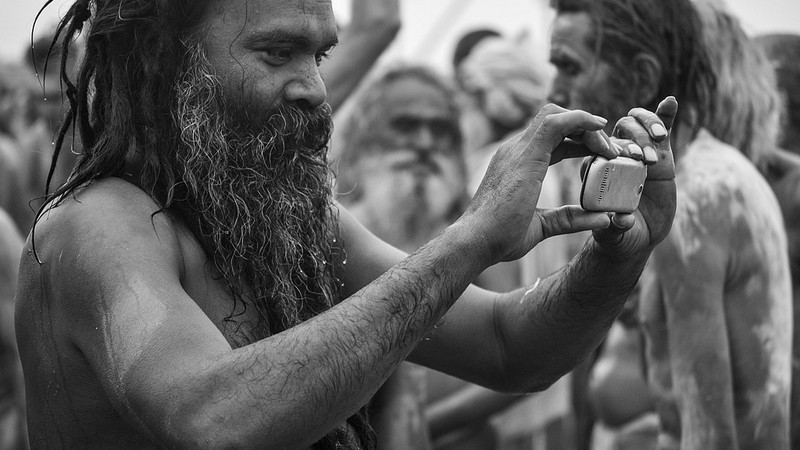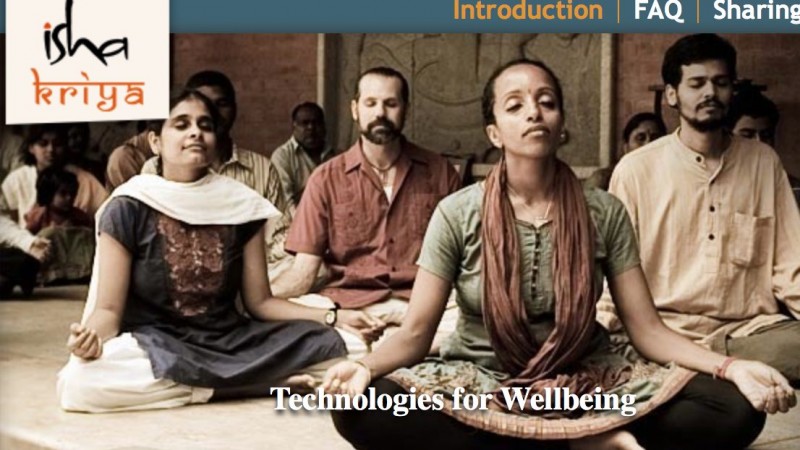For millennia, one key feature of India has always been its multiple religions and spirituality. So it isn’t very surprising that tech entrepreneurs and start-ups have cropped up with the arrival of the 21st century, looking to quench India’s spiritual thirst in cyberspace.
Indians spend about 30 billion dollars on Gods, temples, and pilgrimages annually. Many of them, however, aren’t always pleased with the experience. There are often long, tiring queues at overcrowded temples, where people are pestered by touts, who can spoil an entire outing. It was after one such visit to a temple that Goonjan Mall, an entrepreneur in his mid-twenties, launched OnlinePrasad.com. Goonjan was trying to partake of some prasad — a food offering made to a deity and received by the faithful seeking blessings — but the temple's ambiance put him off completely. Goonjan Mall told Iamne.com about his new venture:
“The idea that religion must be simplified and technology was the perfect tool came in a flash,” he said. He quit his job as a senior analyst at Bain & Company, pulled together some investment cash, and launched the website. Today, his website is estimated to attract an average 2,500 daily visitors, to whom he sells and home-delivers prasad from over 50 temples in India. The company also organizes poojas or prayer rituals at several temples and sells other religious items, as well.
Siddharth S Singh, an associate professor of marketing at the Indian School of Business, Hyderabad, says of the sudden spurt of such online portals:
The dot-com bust of the early 2000s affected many online businesses. There were fewer consumers transacting online. That has now changed. Now, the potential to grow is good.
It isn’t just religion that’s finding a place in the online world. Yoga and meditation have taken to the Internet, too, with the number of guided meditations and online yoga programs growing dramatically in the last few years.
Isha Kriya, a guided meditation venture launched in 2011, is one of the most popular websites, and “meditators” frequently share users’ experiences in regular updates on Twitter. Maura Manzo, a yoga teacher and co-founder of the Yoga Home studio “Beyond Asana,” tweets about her first few days practicing Isha Kriya:
On day 8 of 2x/day #ishakriya meditation practice via @SadhguruJV. You can download it here for free: http://t.co/BNLxr7WFu9
— Maura Manzo (@mauramanzo) November 18, 2013
Proud Ummah, a website that organizes pilgrimages to Hajj and Umrah, is another service making waves online. Founded by Abid Khan, a former Google employee, it offers a pilgrimage kit with 25 products, including essential items necessary to complete the pilgrimage. It has also positioned itself as a one-stop guide on everything related to pilgrimages.
On the whole, the public has welcomed these new websites. Some reactions are more flippant than others. Ina Bansal, a communications and PR manager, comments in a tongue-in-cheek way:
Religion e-commerce on the rise as ventures like #OnlinePrasad, #ProudUmmah take off http://t.co/DJKh4symXc Divine Intervention? Maybe.
— Ina Bansal (@InaBansal) March 6, 2013
These websites’ target audiences seem to find the virtual experience preferable to more traditional alternatives. Ayesha Fathima, a housewife who made the Haj pilgrimage in 2013, certainly had good things to say about Proud Ummah:
I found the information I needed and also saw the kit, now I don't have to go to multiple shops to get everything.
Another blogger writing about Online Prasad and similar ventures recently summed up public opinion on this issue. He is enthusiastic, but sounds a note of caution:
I do like the idea of taking care of the prasad and pooja online. However, I do hope that these entrepreneurs not forget that ethics are more important than just profits and cash flow. In a way, these businesses are marketing “God’s” products, and no one is really comfortable bargaining with a god or temple. So I hope these enterprising people do not take undue advantage of this fact and go overboard.
Internet and online commerce is set to grow in the years to come in India, where mobile devices are proliferating in both urban and rural areas. With the popularity of religion and spirituality unrelenting in India, there's no telling how high the ceiling is on related e-commerce.










4 comments
Such a nice concept used by Goonjan. In india, on the name of spirituality anything will work. I strongly can say that, if anybody will start anything with the concept of GOD, the business will going on!!! That’s why I LOVE INDIAN HINDI MOVIE “OH MY GOD!!!”.
Good post. Thank you for sharing this article.
This is the perfect post to comment on because its based on exactly the same topic as what i have written about Pandharpur Online Darshan
This is the perfect post to comment on because its based on exactly the same topic as what i have written about Postal Code Of India